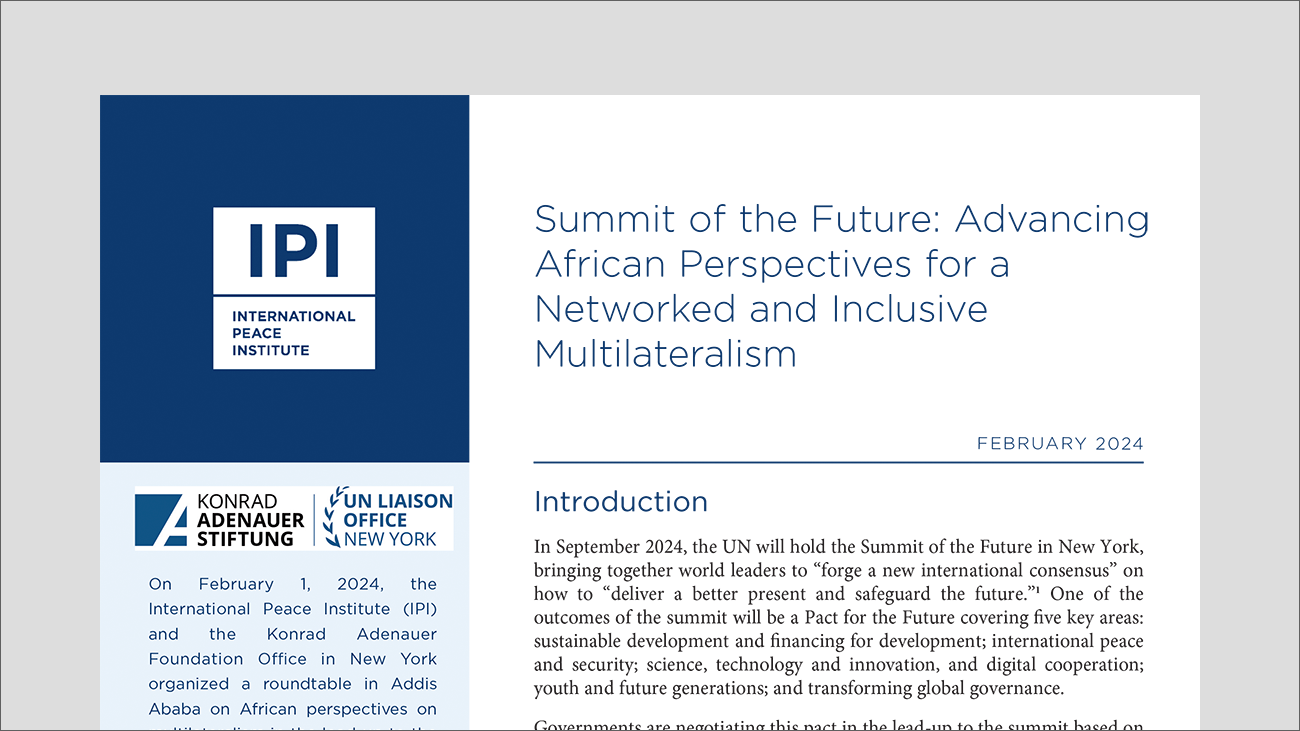
In September 2024, the UN will hold the Summit of the Future in New York, bringing together world leaders to “forge a new international consensus” on how to “deliver a better present and safeguard the future.” One of the outcomes of the summit will be a Pact for the Future covering five key areas: sustainable development and financing for development; international peace and security; science, technology and innovation, and digital cooperation; youth and future generations; and transforming global governance. While the intergovernmental negotiations on the Pact for the Future are meant to be consultative, they could include a broader cross-section of perspectives, including from the African continent.
In this context, IPI and KAS New York hosted a hybrid workshop on February 1, 2024, to gather the perspectives of African states, multilateral institutions, and African civil society organizations on the summit and its outcome. This workshop provided a platform for exchange between member states, the African Union (AU), the UN, civil society organizations, and experts based in Addis Ababa and New York. The workshop was held in Addis Ababa in recognition of the important role of African multilateral institutions such as the AU in contributing to the reform of the international system and reinvigorating global cooperation. The convening aimed to foster a more inclusive and networked multilateralism by providing a platform for African stakeholders and by generating momentum around the summit outside the New York policy space.
The following points emerged as key considerations to ensure that the summit and pact deliver on revitalizing inclusive multilateral cooperation.
- Reform of the multilateral system is critical to restore its credibility and legitimacy and will require, at the very least, renewed commitment by member states to the foundational principles of the UN Charter
- Reform of the international financial architecture needs to include increasing Africa’s representation in international financial institutions and ensuring that Africa benefits from its own resources.
- International peace and security need to be underpinned by a broader toolbox for responding to conflicts and crises, a deeper AU–UN partnership, and greater representation for Africa on the Security Council.
- Reparations and historical justice should be the foundation of efforts to advance peace and development and meaningful reform of the multilateral system.
- Africa’s engagement in the summit should include active participation by African civil society organizations and academics in support of member states to advance key priorities for the continent.
- Monitoring and evaluation will be needed after the summit to hold member states accountable for delivering on their commitments and implementing outcomes.







